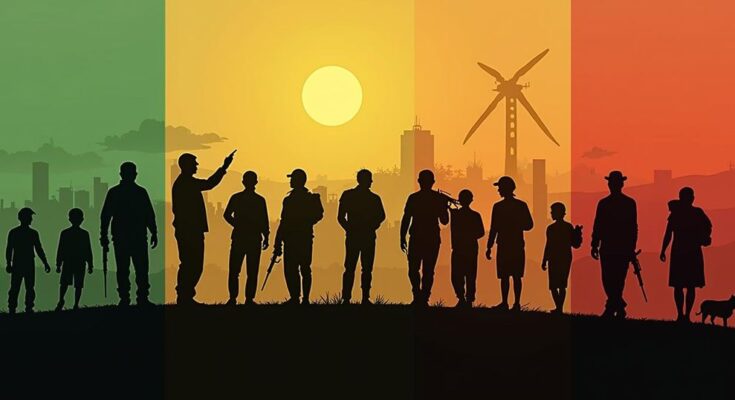In 2018, Eritrea experienced transformative changes, including peace agreements with Ethiopia, normalization of ties with Djibouti, the lifting of UN sanctions, and enhanced regional diplomacy, while acknowledging the ongoing challenges related to human rights and border policies.
The year 2018 marked a significant turning point for Eritrea, a nation that had long been labeled as reclusive and isolated. Beginning in June 2018, various geopolitical developments propelled Eritrea into the international spotlight, fostering enhanced regional cooperation and diplomacy. With a commitment to engage more actively with neighboring countries, President Isaias Afwerki established Asmara as an emerging diplomatic center, hosting various leaders and participating in crucial negotiations. The major events of 2018 can be highlighted as follows: In July, the peace agreement between Eritrea and Ethiopia, led by Ethiopian Prime Minister Abiy Ahmed, set the stage for renewed cooperation. The deal signaled an end to decades of hostility, allowing the two nations to open up to one another socially and economically, while positively impacting broader regional relations, including improving ties with Somalia and ongoing negotiations with Djibouti. By September, Eritrea’s relations with Djibouti were visibly improving following a historic summit in Riyadh, facilitated by the Saudi Arabian government, which aimed to resolve long-standing disputes over territory and prisoners of war. “This meeting opens a new page to promote peace and stability in the region” – Adel bin Ahmed Al-Jubeir, former Saudi foreign minister. In November, the United Nations Security Council unanimously voted to lift sanctions against Eritrea that had been in place for nearly a decade, citing the country’s peace agreements with Ethiopia and Djibouti. This decision marked a significant shift in international relations, aided by changing positions from key international players, particularly the United States. Eritrea’s election to the United Nations Human Rights Council in October further highlighted the complexities of its geopolitical landscape, although the move was met with criticism due to the country’s ongoing human rights violations, particularly regarding its treatment of dissidents. September also saw the reopening of border crossings between Eritrea and Ethiopia, allowing greater freedom of movement for citizens. This reopening coincided with celebrations for the Ethiopian New Year and facilitated increased interaction between the two populations. However, subsequent reports indicated that border movement restrictions were reinstated on both sides, complicating the initial promise of travel freedom and trade. In summary, the events of 2018 symbolize Eritrea’s tentative steps towards reintegration into the regional and international community, propelled by strategic negotiations and a willingness to foster relationships with neighboring nations.
Eritrea has had a history marked by isolationism and conflict, particularly with Ethiopia, leading to a reputation for being reclusive on the world stage. In recent years, tensions with neighbors have begun to thaw, producing opportunities for peace and diplomacy. The year 2018 signified a pivotal period for Eritrea, with the establishment of peace agreements and the lifting of sanctions serving as fundamental turning points. This context is essential for understanding the transformative events that occurred throughout the year, reshaping the country’s standing and interactions within the Horn of Africa.
The events of 2018 ushered in a new era for Eritrea, characterized by significant strides toward regional cooperation and international engagement. The peace agreements with Ethiopia and Djibouti, the lifting of UN sanctions, and Eritrea’s election to the UN Human Rights Council represent key milestones in shifting the country’s narrative. However, challenges remain, particularly concerning human rights issues and the management of reopened borders. Moving forward, Eritrea’s ability to sustain these advancements will depend on its commitment to addressing internal and external concerns systematically.
Original Source: www.africanews.com




